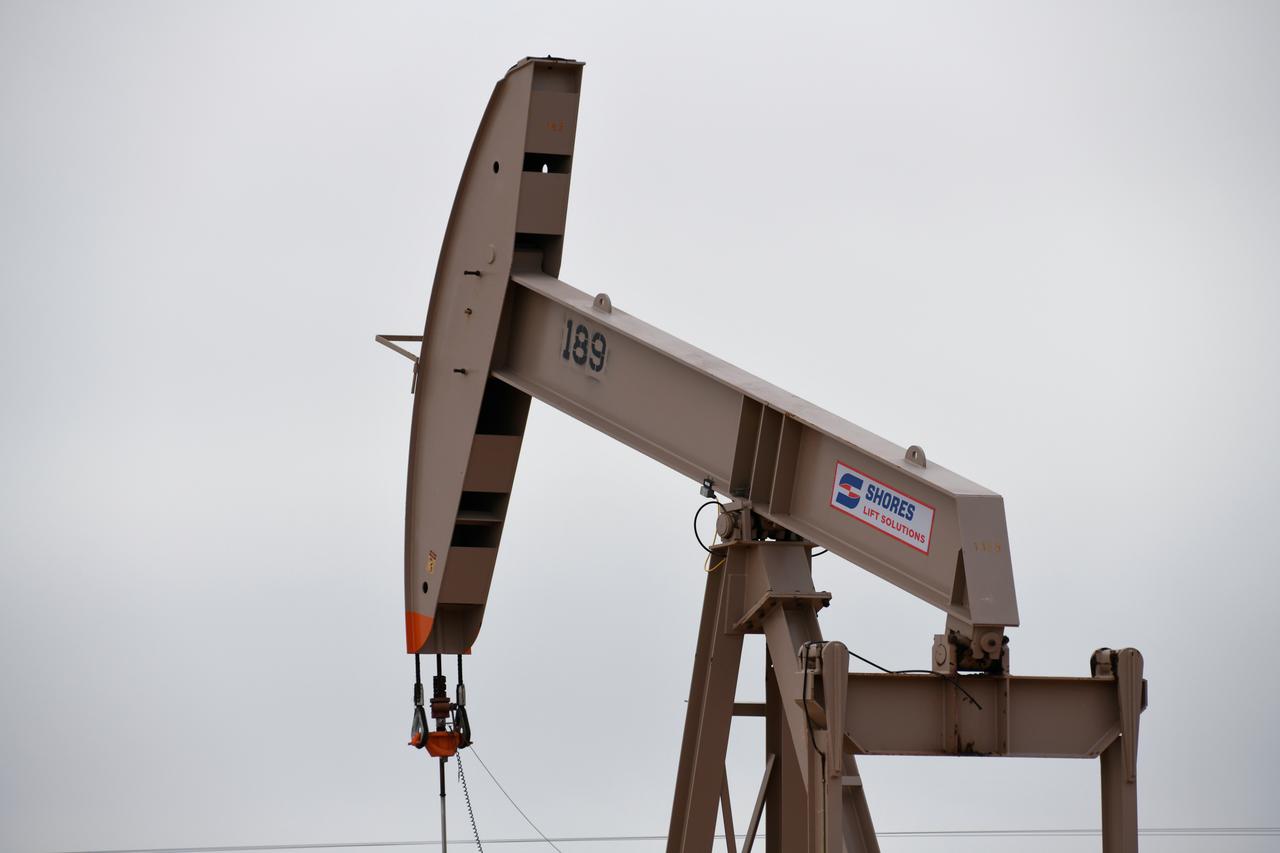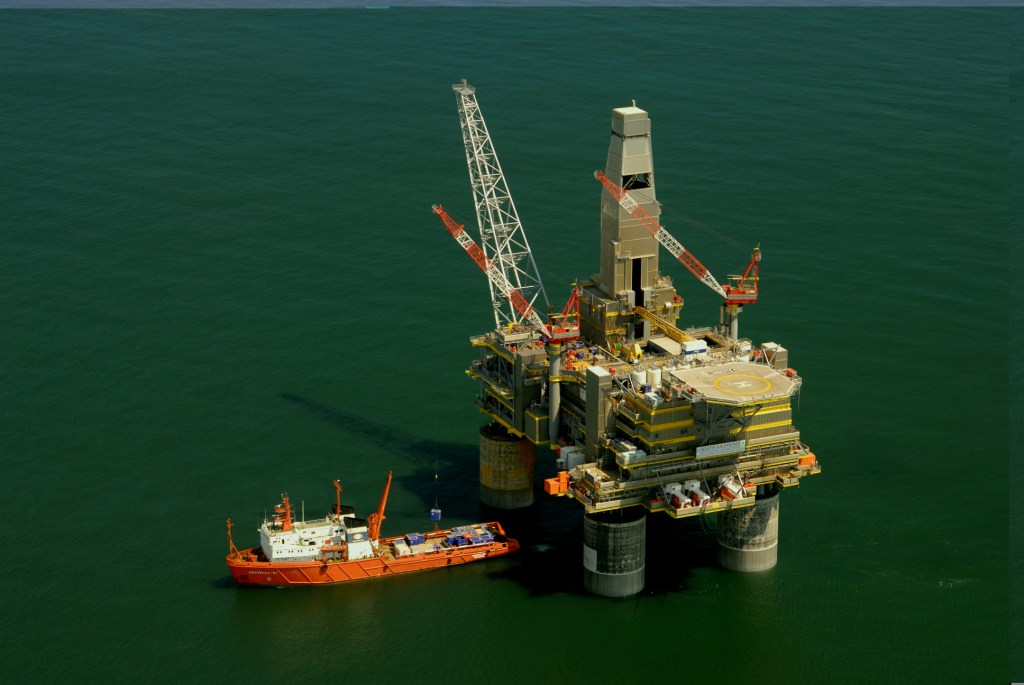Economy
Nigeria’s Crude, Condensate Output Drops 9% to 1.52mb/d

By Adedapo Adesanya
Data from the Department of Petroleum Resources (DPR) has shown that Nigeria’s crude and condensate output fell by 9 per cent to 1.52 million barrels per day in December 2020.
The petroleum sector regulator noted that this reduction happened as the country faced production problems at key export grade, Qua Iboe.
According to the figures, crude production fell to 1.17 million barrels per day last month from 1.33 million barrels per day in November while on the other hand, condensate production was up slightly up to 348,078 barrels per day in the month under review from 339,920 published in the previous month.
Loadings of Qua Iboe have been on force majeure since mid-December after they were temporarily halted due to a fire at the Qua terminal, operator ExxonMobil said.
This occurrence led to production issues for Qua Iboe and the force majeure on exports remained in place. A force majeure is a clause that is included in contracts that prevent someone from fulfilling an agreed obligation due to unforeseen circumstances.
The DPR data showed that Qua Iboe, which is the country’s largest and most popular export grade, averaged 49,946 barrels per day last month compared with 159,225 barrels per day in November.
Exports of Brass River were on force majeure from late November to mid-December, after a sabotage attack on an oil and gas pipeline.
Nigeria saw its output fall steadily in the second half of last year as it came under pressure to make hefty cuts as part of its obligations from the Organisation of the Petroleum Exporting Countries and its allies, OPEC+.
Currently, Nigeria has the capacity to produce around 2.2 million barrels per day of crude and condensate but it pumped around 1.75 million barrels per day in 2019, its lowest since 2016.
Under the OPEC+ deal, Nigeria has committed to keeping its crude output at 1.52 million barrels per day for January and February, 313,000 barrels per day below its baseline under the deal of 1.829 million barrels per day.
The current output restraint by OPEC and its allies are focused on crude and not condensate.
Economy
Oil at $85 Could Boost Nigeria’s External Balance Account—Bloomberg

By Adedapo Adesanya
Nigeria has been identified as one of the winners of an oil windfall following the US and Israel’s war on Iran.
According to Bloomberg Economics, the rise in prices will improve the current account balance of just three sub-Saharan African economies.
Bloomberg Economics’ Ms Yvonne Mhango wrote in a report on Thursday that if oil stays at about $85 a barrel, Angola, Nigeria and Ghana will see their current account balance improve, while the Democratic Republic of Congo, South Africa and Kenya will be among the worst-hit.
“For most African economies, higher oil prices mean weaker currencies and renewed inflationary pressure, which could put rate hikes back on the table,” she said.
According to the analyst, Nigeria, which is Africa’s largest oil producer, will not only gain from crude sales but from fuel exports.
Bloomberg Economics data showed that Nigeria’s current account balance could benefit by as much as 2.3 per cent of gross domestic product (GDP), second only to Angola’s 3.3 per cent and Ghana’s 0.2 per cent.
Already, the 650,000-barrel-a-day Dangote oil refinery has raised the prospect of sending more product to Europe if the price is right.
Dangote is offering up to 44,000 metric tons of jet fuel for loading March 20-22, as well as at least 40,000 tons of gasoil with a maximum sulphur content of 50 parts per million for loading March 15-30.
However, countries like Africa’s largest economy – South Africa – may face challenges if India and Oman, two of its biggest fuel suppliers, cut down on exports. It may see a -1.0 per cent hit to its current account balance.
South African consumers are bracing for fuel costs to increase in April, according to Central Energy Fund data, while traders moved to price in a chance of an interest-rate hike later this month.
Following US and Israeli strikes on Iran over the weekend and retaliatory moves by the Islamic Republic, global crude prices have adjusted sharply.
The Strait of Hormuz, a narrow shipping lane between Iran and Oman, through which roughly a fifth of global oil supply normally passes, has been blocked completely by Iran.
As of press time, Brent crude, which Nigeria prices its crudes is trading up at 2.3 per cent at $83.23. Nigerian crude grades, Brass River and Qua Iboe, are selling at $87 per barrel.
Economy
Nigeria’s Gold Holdings Rise to $3.5bn as CBN Diversifies Reserves

By Adedapo Adesanya
The Central Bank of Nigeria (CBN) said it has taken delivery of responsibly sourced gold refined to London Bullion Market Association (LBMA) Good Delivery standards into its foreign reserves, as part of its reserves diversification strategy.
The gold, sourced in Nigeria and aggregated by the Solid Minerals Development Fund (SMDF) through the National Gold Purchase Programme (NGPP), brings the CBN’s total gold holdings to $3.5 billion.
According to the CBN, the programme involves local miners and operates within a responsible sourcing framework aligned with the Organisation for Economic Co-operation and Development (OECD) Due Diligence Guidelines and the World Gold Council’s London Principles.
Speaking at the one-day Workshop on Strategies to Maximise the Economic Benefits of Minerals in Nigeria, the Governor of the apex bank, Mr Yemi Cardoso, disclosed that the lender acquired the monetary-grade gold in Naira at pricing linked to LBMA benchmarks, a structure designed to preserve Nigeria’s foreign exchange holdings while strengthening the nation’s gold reserves.
By purchasing domestically refined gold without deploying foreign currency, he said, the transaction enhances reserve accretion and supports broader macroeconomic stability objectives. Highlighting major shifts in global reserve management strategies, the CBN Governor noted their increasing importance amid rising global economic uncertainties.
He described the event as a reflection of Nigeria’s shared commitment to responsible and strategic management of its mineral resources. He emphasised that the workshop underscores the nation’s readiness to adapt to the realities of an evolving global economy, where resilience, diversification, and prudent governance have become increasingly vital.
He further explained that the session, convened by the CBN’s Corporate Secretariat and Reserve Management Departments, was designed to create a structured platform for engagement with key players in the gold sector and to deepen understanding of the industry’s current landscape, opportunities, and challenges across its value chain.
The governor noted that central banks around the world are prioritising economic resilience amid persistent geopolitical and market uncertainties.
He said gold has regained importance as a hedge against inflation and volatility, while other critical minerals are increasingly shaping global supply chains and advanced industrial development
Mr Cardoso emphasised that Nigeria’s immense natural and human resource potential can only be fully realised through prudence, strategic coordination, and long-term planning. He highlighted the need for strict adherence to internationally recognised standards, stressing that institutional credibility depends on strong governance frameworks.
On her part, the Executive Secretary of the Solid Minerals Development Fund (SMDF), Mrs Fatima Umaru Shinkafi, highlighted that the successful delivery of LBMA standard gold demonstrates the strength of the organisation’s formalisation framework and supply chain due diligence processes.
The World Gold Council’s Director of Central Banks and Public Policy, Ms Kurtulus Taskale Diamondopoulos, commended both the CBN and SMDF for designing the Nigerian Gold Purchase Programme (NGPP) in line with the twelve London Principles for responsible artisanal and small-scale gold sourcing.
She noted that the partnership between the CBN as sole off-taker and the SMDF as fiscal and supply chain manager offers a strong model for other countries seeking to strengthen similar programmes.
The President and CEO of the Africa Finance Corporation (AFC), Ms Samaila Zubairu, reaffirmed AFC’s commitment to financing and formalising Nigeria’s mineral sector, stressing the importance of accurate data and mineral processing infrastructure to attract investment, improve gold recovery, reduce environmental impact and support central bank purchases.
Also speaking, the Executive Vice Chairman of Kian Smith Gold Company, Ms Nere Emiko, underscored the urgent need for Nigeria to build strategic gold reserves and leverage commodity exchanges, noting the country’s low reserve levels relative to peers and calling for greater investment in exploration and transparency.
The Domestic Gold Purchase Programme forms part of the central bank’s broader strategy to enhance reserve quality, reduce external vulnerabilities, and position Nigeria’s mineral wealth as a pillar of long-term economic stability.
Economy
Nigeria Generate N2.96trn from CIT, N2.28trn from VAT In Q3 2025

By Adedapo Adesanya
Nigeria generated N2.96 trillion from company income tax (CIT) in the third quarter of 2025, according to the latest data released by the National Bureau of Statistics (NBS).
The Q3 figure shows an increase of 6.55 per cent on a quarter-on-quarter basis from N2.78 trillion in Q2 2025.
The NBS data revealed that domestic CIT received was N1.21 trillion, while foreign CIT payment was N1.75 trillion in Q3 2025.
The rise came ahead of the January implementation of the tax reform, which analysts said could significantly increase tax revenue. The government hopes to leverage the reform to significantly increase the tax revenue.
On a quarter-on-quarter basis, arts, entertainment and recreation activities recorded the highest growth rate with 41.98 per cent; followed by accommodation and food service activities, and mining and quarrying with 37.11 per cent and 15.36 per cent, respectively.
On a year-on-year basis, CIT collections in Q3 2025 increased by 67.19 per cent from Q3 2024.
On the other hand, activities of households as employers, undifferentiated goods- and services-producing activities of households for own use recorded the least with –83.88 per cent, followed by Financial and insurance activities (–79.72 per cent) and construction (–66.52 per cent).
In terms of Value Added Tax (VAT), collections also rose sharply, reaching N2.28 trillion in Q3 2025 from N1.77 trillion in the same quarter of the previous year, the NBS report showed.
VAT grew by 10.66 per cent quarterly from N2.06 trillion recorded in Q2 2025, driven largely by manufacturing, information and communication and mining/quarrying.
A breakdown of the N2.28 trillion generated in Q3 showed that local payments accounted for N1.12 trillion. Foreign VAT payments stood at N680.23 billion, while import VAT contributed N479.79 billion.
Sectoral analysis revealed that manufacturing recorded the largest share of VAT at 25.89 per cent in Q3 2025. Information and communication followed at 18.77 per cent, while mining and quarrying accounted for 14.85 per cent.
Together, the three sectors contributed more than half of the total VAT generated in the quarter.
In terms of growth performance, administrative and support service activities recorded the highest quarter-on-quarter increase at 89.28 per cent.
Arts, entertainment and recreation followed with 82.49 per cent growth, while human health and social work activities rose by 32.4 per cent.
However, not all sectors recorded gains. Real estate activities posted the sharpest decline, contracting by 51.33 per cent quarter on quarter.
Activities of households as employers and undifferentiated goods and services producing activities of households for own use fell by 36.22 per cent, while other service activities dropped by 20.3 per cent.
The report noted that activities of households as employers and undifferentiated goods and services producing activities of households for own use recorded the lowest VAT share at 0.003 per cent.
This was followed by activities of extraterritorial organisations and bodies, and water supply, sewerage and waste management, which accounted for 0.03 per cent each.
Overall, the year-on-year comparison shows a striking rebound in both corporate and consumption-based tax revenues, signalling stronger taxable activities and improving compliance across key sectors of the Nigerian economy.
-

 Feature/OPED6 years ago
Feature/OPED6 years agoDavos was Different this year
-
Travel/Tourism10 years ago
Lagos Seals Western Lodge Hotel In Ikorodu
-

 Showbiz3 years ago
Showbiz3 years agoEstranged Lover Releases Videos of Empress Njamah Bathing
-

 Banking8 years ago
Banking8 years agoSort Codes of GTBank Branches in Nigeria
-

 Economy3 years ago
Economy3 years agoSubsidy Removal: CNG at N130 Per Litre Cheaper Than Petrol—IPMAN
-

 Banking3 years ago
Banking3 years agoSort Codes of UBA Branches in Nigeria
-

 Banking3 years ago
Banking3 years agoFirst Bank Announces Planned Downtime
-

 Sports3 years ago
Sports3 years agoHighest Paid Nigerian Footballer – How Much Do Nigerian Footballers Earn












